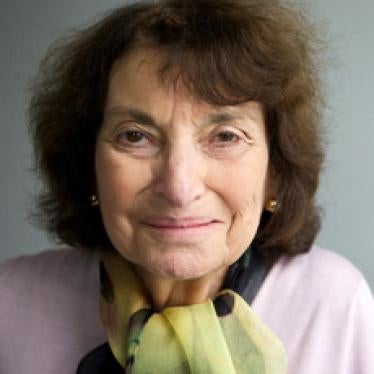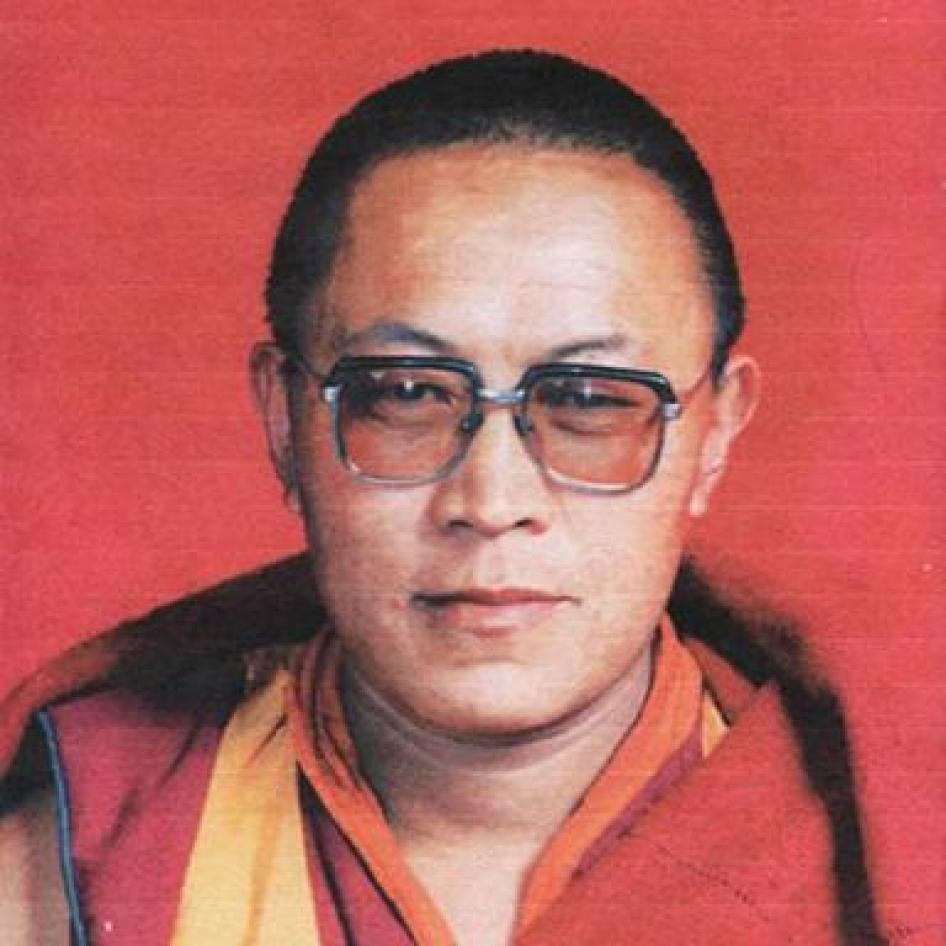Tenzin Delek Rinpoche, a revered Tibetan lama whose family was informed this week of his death in detention, never ceased to be an inspiration to Tibetans and a thorn in the side of Chinese officials even while held virtually incommunicado in prison. Even in death he continues to generate controversy: to the dismay of his family and fellow Tibetans, who wanted funeral arrangements honoring their religious traditions, Chinese authorities cremated his body and moved swiftly against those trying to protest his treatment.
Tenzin Delek Rinpoche was given a suspended death sentence in 2002, commuted in 2005 to life in prison, for “causing explosions and inciting the separation of the state.” He categorically denied the charges, saying “I always said we should not so much as raise a hand against another.”
In 2004, Human Rights Watch, with help from a great many Tibetans, issued a report showing the lack of credible evidence again him, and focused on why Chinese officials wanted to silence him. As HRW wrote at the time, his “case was the culmination of a decade-long effort to curb his efforts to foster Tibetan Buddhism, his support for the Dalai Lama as a religious leader, and his work to develop Tibetan social and cultural institutions,” such as much needed schools, old-age homes, and medical clinics. In addition, he advocated for a sustainable approach to the environment.
As if a life sentence weren’t enough, it appears as if the authorities were determined to make Tenzin Delek Rinpoche’s imprisonment as degrading as possible. He was denied visitors, medical help and the right to practice his religion. Contrary to local prison regulations that guaranteed at least one monthly family visit,, Tenzin Delek Rinpoche’s family was allowed only one visit, in November 2013, over the course of more than 13 years in prison.
The outpouring of grief at the news of his death is testimony to his abiding popularity and respect with which he was held. We at Human Rights Watch share that respect, and join the call for an international, independent investigation into his death.









